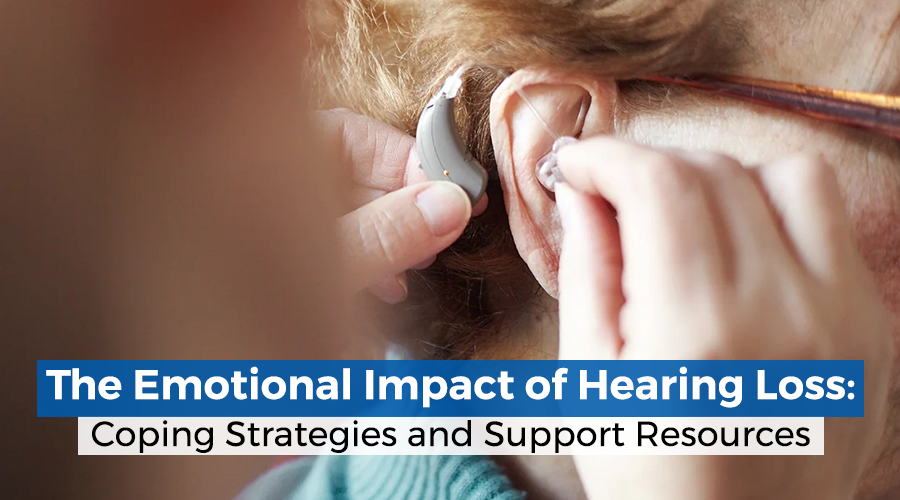The Emotional Impact of Hearing Loss: Coping Strategies and Support Resources

Hearing loss is not just a physical condition; it can also have profound emotional and psychological effects on individuals. From feelings of isolation and frustration to anxiety and depression, the emotional toll of hearing loss should not be underestimated. In this blog post, we’ll explore the emotional impact of hearing loss, discuss common coping strategies, and highlight support resources available to help individuals navigate this aspect of their hearing journey.
Understanding the Emotional Journey: Hearing loss can trigger a range of emotions, including:
- Frustration and Anger: Difficulty hearing in everyday situations can lead to feelings of frustration and anger, especially when communication becomes challenging.
- Isolation and Loneliness: Struggling to engage in conversations or social activities may result in feelings of isolation and loneliness, leading to withdrawal from social interactions.
- Anxiety and Stress: Fear of misunderstanding or missing important information can contribute to heightened anxiety and stress levels in individuals with hearing loss.
- Depression: Prolonged feelings of isolation, frustration, and reduced quality of life may increase the risk of depression in individuals with untreated hearing loss.
Coping Strategies: While coping with the emotional impact of hearing loss can be challenging, there are several strategies that can help:
- Seek Support: Reach out to friends, family members, or support groups for emotional support and understanding. Sharing your experiences with others who have similar challenges can provide comfort and validation.
- Practice Self-Care: Engage in activities that promote emotional well-being, such as exercise, meditation, hobbies, or spending time outdoors. Taking care of your overall health can help alleviate stress and improve mood.
- Communicate Effectively: Be open and honest with loved ones about your feelings and needs related to hearing loss. Effective communication can strengthen relationships and foster understanding.
- Educate Yourself: Learn more about hearing loss and its emotional impact to gain a better understanding of your own experiences. Knowledge empowers you to advocate for yourself and seek appropriate support.
- Consider Counseling: If feelings of anxiety, depression, or distress persist, consider seeking professional help from a counselor or therapist specializing in hearing loss and mental health.
Support Resources: Numerous resources are available to support individuals with hearing loss:
- Hearing Loss Associations: Some Organizations offer information, advocacy, and support groups for individuals with hearing loss and their families.
- Online Communities: Join online forums or social media groups dedicated to hearing loss to connect with others, share experiences, and access peer support.
- Counseling Services: Seek counseling or therapy from mental health professionals trained to address the emotional aspects of hearing loss.
- Hearing Healthcare Providers: Audiologists and hearing healthcare professionals can offer guidance, counseling, and referrals to additional support services as needed.
While hearing loss can present emotional challenges, it’s essential to remember that you’re not alone. By acknowledging and addressing the emotional impact of hearing loss, seeking support from loved ones and professionals, and implementing coping strategies, individuals can navigate this journey with resilience and positivity. Remember, reaching out for help is a sign of strength, and there are resources available to support you every step of the way.
